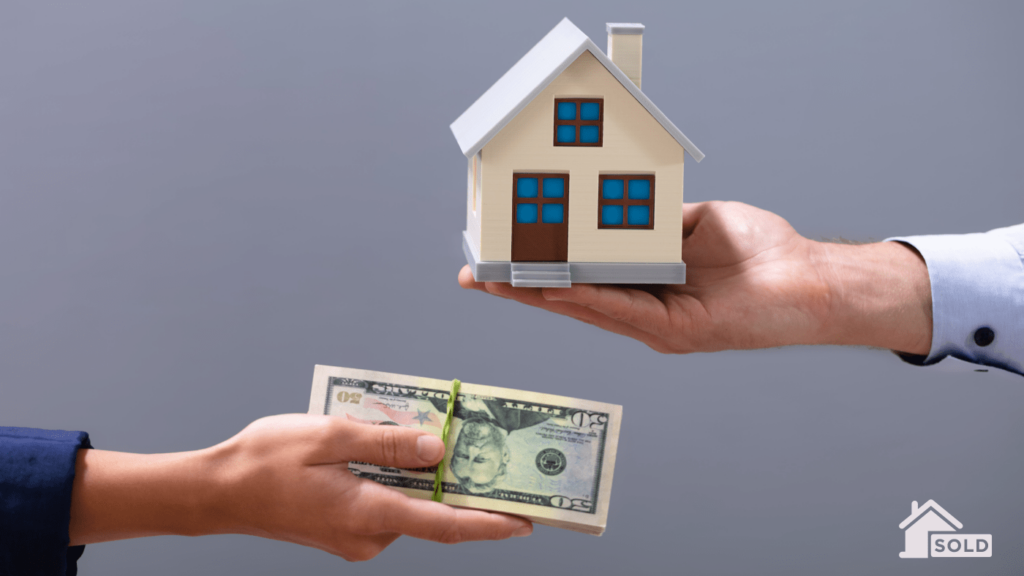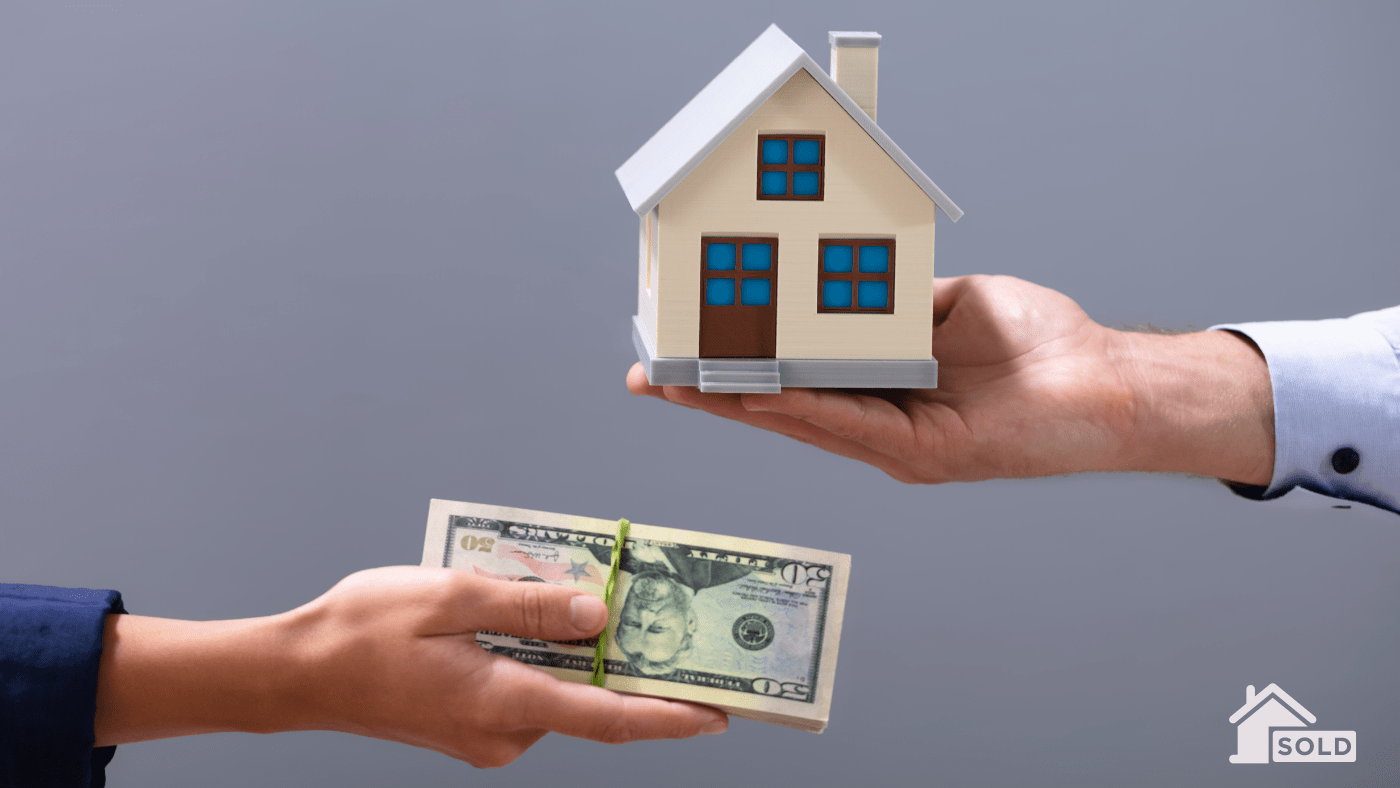
Life can be unpredictable, and at times you might need to quickly sell your Florida home. Whether you’ve inherited a property, need to move quickly or lack the resources for making repairs, selling “as-is” might be a practical solution.
Here’s an overview of what selling as-is in Florida involves, aiding you in determining if it’s the right choice for you:
What Does “As-Is” Mean?
An “as-is” sale means you’re selling your house in its current condition, without making any repairs. The buyer takes on the property with all its quirks and known issues.
Key Features of an “As-Is” Sale
- No Repairs Needed: As the seller, you are not obligated to fix any damages or make improvements.
- Disclosure Requirements: You must still disclose any known issues with the property, such as structural damage, plumbing problems, or outdated electrical systems.
- Pricing Considerations: Typically, homes sold “as-is” may be priced lower to reflect their condition and attract buyers willing to take on necessary repairs.
- Buyer Responsibility: The buyer assumes full responsibility for any future repairs or renovations needed after the purchase.
Benefits of Selling “As-Is”
- Quick Sale Process: Without the need for repairs, the selling process can be faster, allowing you to move on quickly.
- Cost Savings: You save money by avoiding repair costs and renovations before listing the property.
- Less Stress: Eliminates the hassle and stress of managing home improvements.
Potential Drawbacks
- Lower Offers: Buyers might offer less due to the anticipated costs of repairs.
- Limited Buyer Pool: Some buyers may be deterred by the prospect of taking on a fixer-upper project.
Selling your home “as-is” can be an efficient solution if you’re looking to sell quickly or lack the resources for extensive repairs. However, it’s essential to weigh these factors carefully to determine if this approach aligns with your goals and circumstances.
Common Reasons Selling As-Is May Make Sense in Florida
Selling a property “as-is” can be a strategic decision in various scenarios, particularly in Florida. Here are some common reasons why this approach might make sense:
1. Inherited Properties
- Immediate Sale Needs: Often, inherited homes come with emotional and financial burdens. Selling as-is allows you to quickly liquidate the asset without the hassle of repairs.
- Out-of-State Owners: If you live out of state, managing renovations can be particularly challenging. Selling as-is eliminates the need for long-distance project management.
2. Financial Constraints
- Avoid Repair Costs: Extensive home repairs can be costly. If you’re facing financial difficulties, selling as-is helps you avoid additional expenses.
- Preventing Foreclosure: Homeowners on the brink of foreclosure may find selling their property as-is a viable option to quickly settle debts and avoid further financial complications.
3. Time-Sensitive Situations
- Job Relocation: A sudden job transfer or relocation can leave little time for making home improvements. Selling as-is accelerates the process so you can focus on your move.
- Health Issues: Medical emergencies or health conditions may require urgent relocation or financial resources, making a fast sale advantageous.
4. Market Conditions
- Hot Real Estate Market: In a seller’s market where demand outweighs supply, buyers may be more willing to overlook minor issues, making an as-is sale feasible.
- Investor Interest: Florida’s real estate market often attracts investors looking for properties to renovate and flip. These buyers expect to handle repairs themselves and may prefer as-is listings.
5. Property Condition
- Extensive Repairs Needed: Some homes require significant work that owners are unable or unwilling to undertake. Selling the property as-is transfers this responsibility to the buyer.
- Aging Structures: Older properties with outdated systems and structures might not justify the cost of modern updates before selling.
By considering these factors, you can determine whether selling your home “as-is” aligns with your specific needs and circumstances in Florida’s dynamic real estate market.
Who Buys Properties As-Is in Florida?
There are a few types of buyers who are typically interested in purchasing properties as-is in Florida. These include:
1. Cash Home Buyers
- Real Estate Investors: Often, real estate investors are looking for properties that they can purchase quickly, renovate, and then sell at a profit. These buyers usually have the capital ready to make an immediate purchase and prefer as-is properties because they plan to make their own improvements.
- House Flippers: Individuals or companies that specialize in flipping houses are another common type of cash home buyer. They seek out properties that need work, buy them at a lower price, renovate them efficiently, and then sell them for a profit.
- iBuyers: Some tech-savvy companies known as iBuyers use algorithms to evaluate homes and make quick cash offers. They provide the convenience of a fast sale, often without the need for traditional showings or negotiations.
2. Individual Buyers
- First-Time Homebuyers: Some first-time buyers might be willing to take on an as-is property if it allows them to enter the housing market at a lower price point.
- Families with Specific Needs: Families looking for a particular type of home or location may be more flexible about the property’s condition if it meets their other criteria.
3. Developers
- Developers often look for as-is properties that can be demolished or significantly renovated for new projects. They are generally less concerned with the current state of the property and more focused on its potential for future development.
4. Landlords
- Some landlords look for affordable properties that they can convert into rental units. These buyers are typically interested in homes they can refurbish to meet rental standards but are not deterred by initial repair needs.
By understanding who buys properties as-is in Florida, you can better target your marketing efforts and streamline the selling process.
Preparing for an As-Is Sale in Florida
When preparing to sell your property as-is, it’s crucial to take certain steps to ensure a smooth process and attract the right buyers. Here are key actions you should consider:
1. Understand the Market
- Research Local Market Conditions: Investigate real estate trends in your area. Understanding whether there’s a high demand or surplus of as-is properties can help you set a realistic price and anticipate buyer interest.
- Identify Potential Buyers: Determine who is most likely to buy your property. This could include investors looking for fixer-uppers, developers interested in redevelopment opportunities, or first-time homebuyers seeking entry-level pricing.
2. Assess Property Condition
- Conduct a Home Inspection: Even though you’re selling as-is, a home inspection can provide a comprehensive overview of the property’s condition. Knowing what issues exist will allow you to disclose them upfront, potentially avoiding surprises that could derail negotiations.
- List Repairs Needed: Make a detailed list of necessary repairs and maintenance issues. Disclosing these transparently to potential buyers builds trust and ensures they are fully informed about the property’s state.
3. Pricing Strategy
- Set a Competitive Price: Price your property competitively based on its current condition and the findings from your market research and home inspection. A well-priced as-is property can attract multiple offers.
- Consider Lowering Price for Quick Sale: If your priority is to sell quickly, consider pricing slightly below market value. This strategy can generate more interest and faster offers, especially from cash buyers or investors.
4. Legal Considerations
- Understand Disclosure Requirements: Familiarize yourself with Florida’s disclosure laws to ensure you provide all necessary information about the property’s condition. Failure to disclose known issues can lead to legal complications down the line.
- Consult with a Real Estate Attorney: An attorney can assist in navigating legal complexities, ensuring all paperwork is correctly filed, and advising on any specific disclosures required for as-is sales.
5. Marketing Your Property
- Highlight Key Features: Emphasize any unique aspects of the property or its location that could appeal to buyers, such as proximity to schools, public transportation, or desirable neighborhoods.
- Use Professional Photos: High-quality images can significantly enhance your listing’s appeal. Even if the property needs work, professional photos can highlight its potential.
- Leverage Online Listings: Utilize popular real estate websites and social media platforms to reach a broader audience. Detailed descriptions paired with professional photos can help attract serious buyers.
6. Prepare for Negotiations
- Be Ready to Negotiate: Buyers will likely want to negotiate due to the property’s condition. Be prepared with data from your research and inspection reports to justify your asking price or counter-offer effectively.
- Stay Flexible: Flexibility on terms such as closing dates or minor concessions on repairs can make your property more attractive and facilitate quicker deals.
By following these steps, you can effectively prepare for an as-is sale, making the process smoother and more efficient while attracting serious buyers interested in your property’s potential.
The Bottom Line
Selling as-is in Florida can be a smart strategy if you’re looking for a quick sale or if the property requires significant repairs. Just remember to price it accordingly, market it strategically, and be prepared for negotiations. With the right approach, you can successfully sell your property as-is and move on to your next real estate venture.
At Pavel Buys Houses, we understand the challenges of selling a property as-is and can offer you a fair cash offer for your property, regardless of its condition. Contact us today to explore your options and make the selling process hassle-free.

